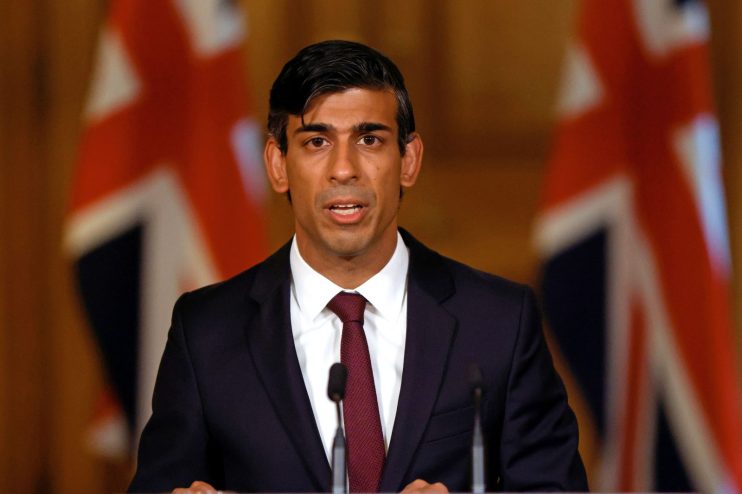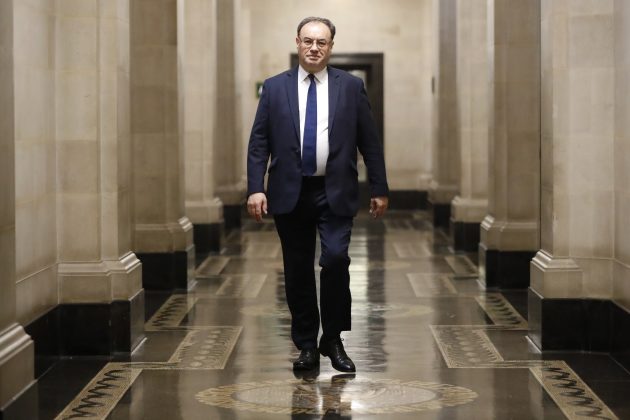Four things to watch as the Bank of England sets interest rates

The Bank of England’s group of interest rate-setters will announce their latest monetary policy decision tomorrow, albeit virtually.
Since the last meeting in September, the government has announced a new month-long lockdown for England amid soaring coronavirus cases.
Most analysts expect the Bank to launch more stimulus to support the economy during the winter.
Here are four key things to look out for.
Bank of England to boost bond purchases
The Bank has announced £300bn of new bond purchases this year to try to stimulate lending and soothe markets during the coronavirus downturn.
However, the latest lockdown measures are set to hit economic growth hard as pubs, restaurants, and non-essential shops are forced to close.
Analysts therefore expect the BoE to ramp up bond purchases – or quantitative easing (QE) – by another £100bn on Thursday. This would help support lending during the tough months ahead.
However, governor Andrew Bailey has said that QE works best when it goes “big and fast”. Some economists have suggested this means the Bank could surprise markets with even more than £100bn.
George Brown, economist at Investec, said he expects the package to be extended by £100bn for now.
“While the usual bonfire night displays have been cancelled this year, we can at least rely on the Bank of England’s MPC to provide some fireworks at midday.”
Ruth Gregory, senior UK economist at Capital Economics, said the Bank is also likely to have to do more by the end of 2021.
MPC to downgrade forecasts
The Bank will produce another quarterly economic forecast tomorrow, known as the monetary policy report.
In August, it predicted the UK economy would shrink 9.5 per cent this year and grow nine per cent in 2021. It said UK GDP would regain its pre-Covid size by the end of next year.
Even at the time, economists said the Bank was being overly optimistic. Now the latest surge in cases and new lockdowns have caused a sharp recalibration.
Goldman Sachs yesterday said the UK economy would shrink 2.4 per cent in the final quarter. It had originally expected 3.6 per cent growth.
Capital Economics has also cut its forecasts. It now thinks GDP will shrink 11.5 per cent this year – by far the worst performance in modern history – and grow only four per cent in 2021.
Howard Archer, chief economic adviser to the EY Item Club, said it is “very likely that the Bank of England will downgrade its outlook for the UK economy”.
In particular, he said, it will push back when it expects the economy to regain its pre-coronavirus level.

Negative interest rates – will they, won’t they?
Earlier this year, the Bank added negative interest rates to its “toolbox” of possible measures for the first time.
Negative interest rates mean banks depositing reserves at the BoE would be charged to do so. The idea is that this encourages them to lend out their spare cash.
However, the BoE is currently consulting banks on how practical such a policy would be. That means it is unlikely to use them any time before the spring at least.
Yet the Bank may give a bit more insight into how well it thinks the UK financial system would cope.
MPC members have made some conflicting noises on the issue recently. Deputy governor Dave Ramsden said that they could be bad for lenders.
But external member Gertjan Vlieghe said the risk that they “end up being counterproductive… is low”. The Bank may want to provide a bit more clarity.
How does Brexit fit into all this?
Another area of interest is the Bank’s assumptions about Brexit. It has consistently said that it has based its outlook on “an immediate but orderly move to a comprehensive free trade agreement with the EU”.
However, with just weeks to go before talks have to wrap up, it looks unlikely the post-Brexit trade deal will be “comprehensive”.
Dean Turner, economist at UBS Global Wealth Management, said: “It has been apparent for some time that the trade deal the UK government is seeking will be anything but ‘comprehensive’.”
Gregory said: “The Bank may now assume that a slim trade deal is agreed instead.” She said this “would put further downward pressure on its GDP forecasts”.